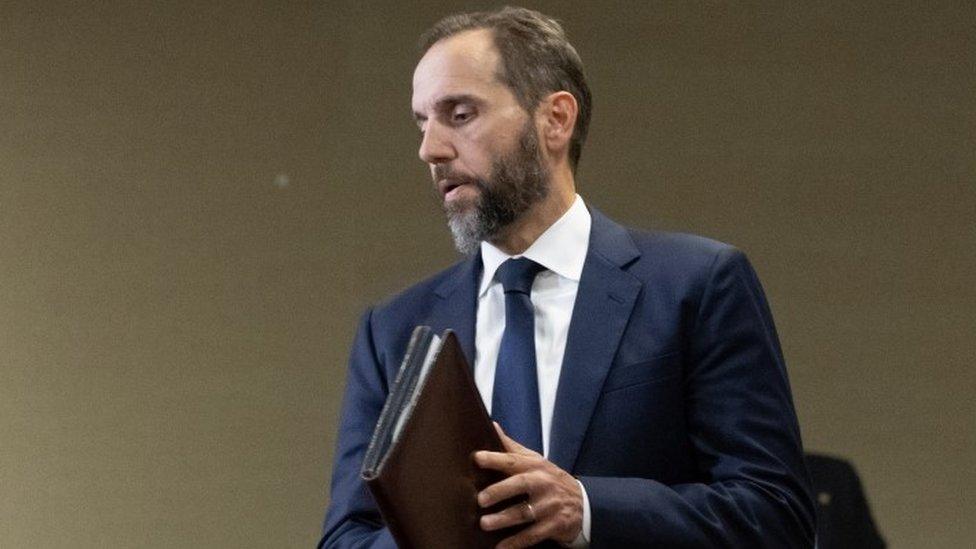Donald Trump does not have presidential immunity, US court rules
- Published
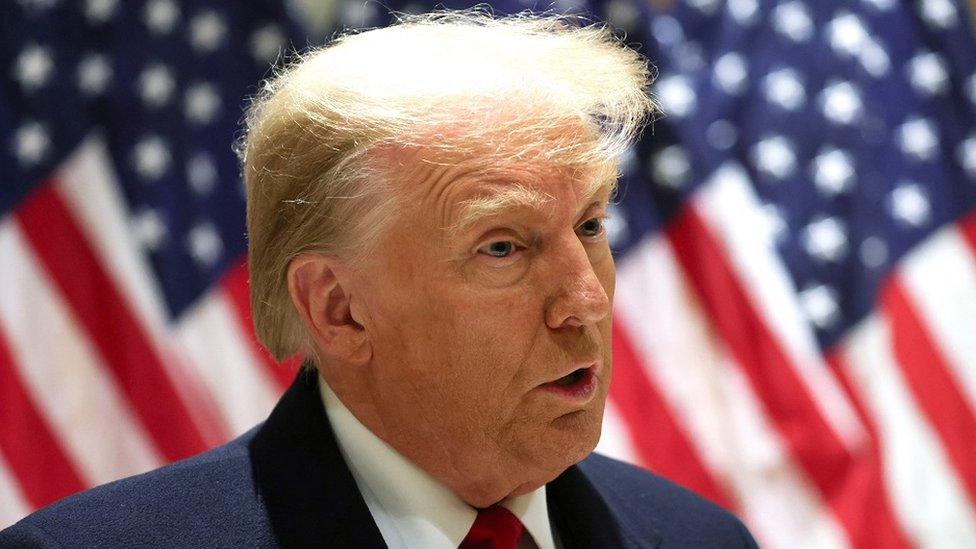
A spokesman for the former president said they would file an appeal to the Supreme Court
Donald Trump does not have presidential immunity and can be prosecuted on charges of plotting to overturn the 2020 election, a US court has ruled.
Mr Trump had claimed in the landmark legal case that he was immune from criminal charges for acts he said fell within his duties as president.
But Tuesday's unanimous ruling in Washington DC struck down that claim.
It is a setback for Mr Trump, who has for years cited presidential immunity while battling multiple cases.
"We cannot accept former President Trump's claim that a president has unbounded authority to commit crimes that would neutralise the most fundamental check on executive power - the recognition and implementation of election results," the three-judge panel from the US Court of Appeals for the DC Circuit wrote in its opinion.
It added: "For the purpose of this criminal case, former President Trump has become citizen Trump, with all of the defences of any other criminal defendant."
In a statement shortly after the ruling, Trump campaign spokesman Steven Cheung said the former president "respectfully disagrees with the DC Circuit's decision and will appeal it".
The case could ultimately go to the Supreme Court, where conservatives hold a 6-3 majority. Mr Trump has until 12 February to file an appeal.
"If immunity is not granted to a president, every future president who leaves office will be immediately indicted by the opposing party," Mr Cheung said. "Without complete immunity, a president of the United States would not be able to properly function."

More on the US election
Explained: A simple guide to the US 2024 election
Policies: What a Trump second term would look like
On the ground: Are black voters losing faith in Biden?

A handful of Mr Trump's most vocal defenders said they expected the Supreme Court to reverse the decision.
New York congresswoman Elise Stefanik, a potential vice-presidential running mate for Mr Trump if he becomes the Republican nominee in this year's election, said the decision "sets a dangerous precedent, violates our Constitution, and threatens the very bedrock of our nation".
The three-judge panel, however, said granting a president immunity would pose a threat to the balance of power in the US government, whose three distinct branches are supposed to serve as a check on each other.
"Former President Trump's alleged efforts to remain in power despite losing the 2020 election were, if proven, an unprecedented assault on the structure of our government," they wrote.
A strongly worded section of the document said "former President Trump's stance would collapse our system of separated powers by placing the president beyond the reach of all three branches".
"We cannot accept that the office of the presidency places its former occupants above the law for all time thereafter," the three judges - two Democratic appointees and one Republican appointee - wrote.
US Special Counsel Jack Smith has charged Mr Trump, 77, with conspiring to overturn Joe Biden's victory in the 2020 election and committing fraud in an attempt to stay in office.
The trial in that case was initially scheduled for 4 March, but was postponed pending a ruling on the immunity claim. It could be delayed for weeks, if not months, should the case end up before the highest court in the land.
The Supreme Court has the choice of putting a hold on the lower court ruling, refusing to grant such a request, or resolving the immunity question themselves right away. If it chooses the third option the justices would make a decision by June.
But Neal Katyal, a prominent lawyer who has argued cases before the top court, predicted on X (formerly Twitter) that it will not take up the case.
"Trump's argument is so weak and the Court of Appeals decision so thorough and well done, I can see SCOTUS voting not to hear it," he wrote.
Legal analysts said the methodical nature of the appeals ruling, laid out over 57 pages that are dense with court citations and historical references, sent a clear message.
"What the Court of Appeals said, very politely and very dryly, is 'You're not even close, Trump'. None of these arguments pass the laugh test," Patrick Cotter, a former federal prosecutor, told BBC News.
The argument from Mr Trump's lawyers hinged on the idea that a president who is not convicted for impeachment by Congress cannot be subject to criminal proceedings. Mr Trump, they noted, was impeached by the House of Representatives but never convicted by the Senate.
In Tuesday's ruling, the judges wrote that interpretation "still would leave a president free to commit all manner of crimes with impunity, so long as he is not impeached and convicted".
Trump: 'As a president, you have to have immunity'
- Published9 January 2024
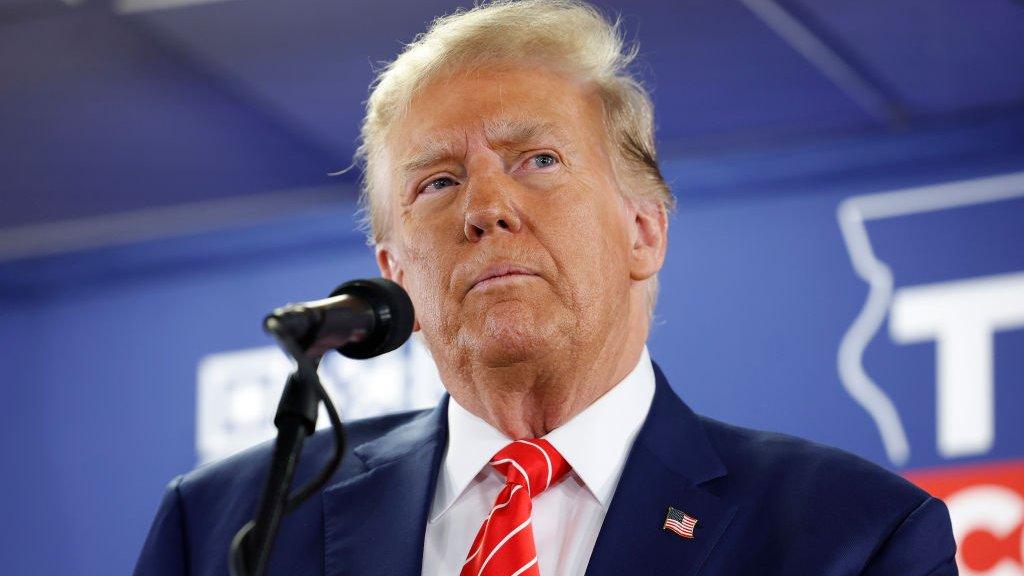
- Published9 January 2024
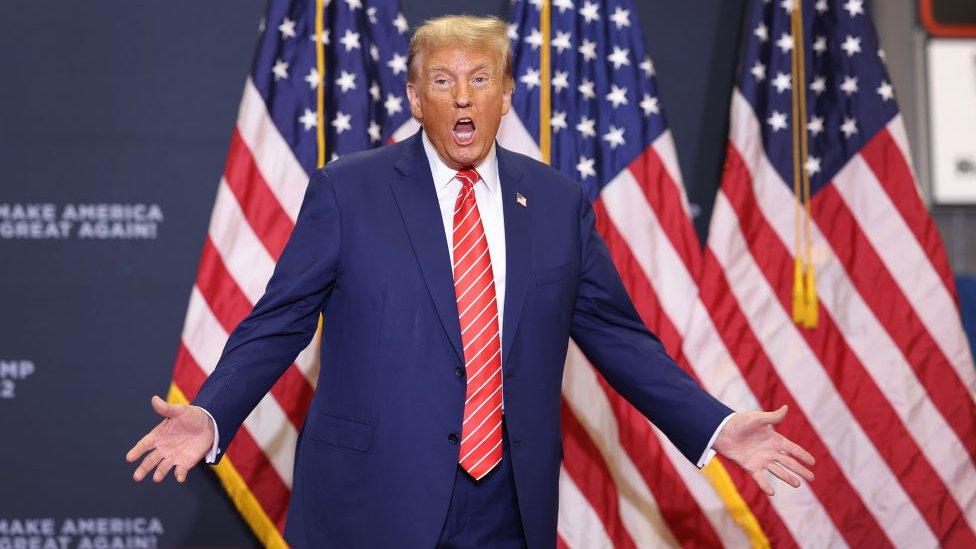
- Published28 August 2024
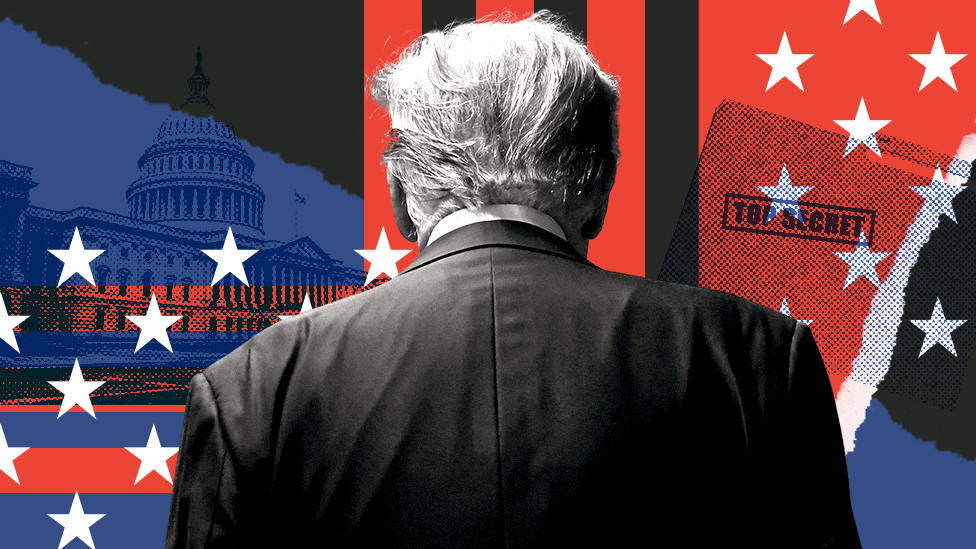
- Published15 July 2024
